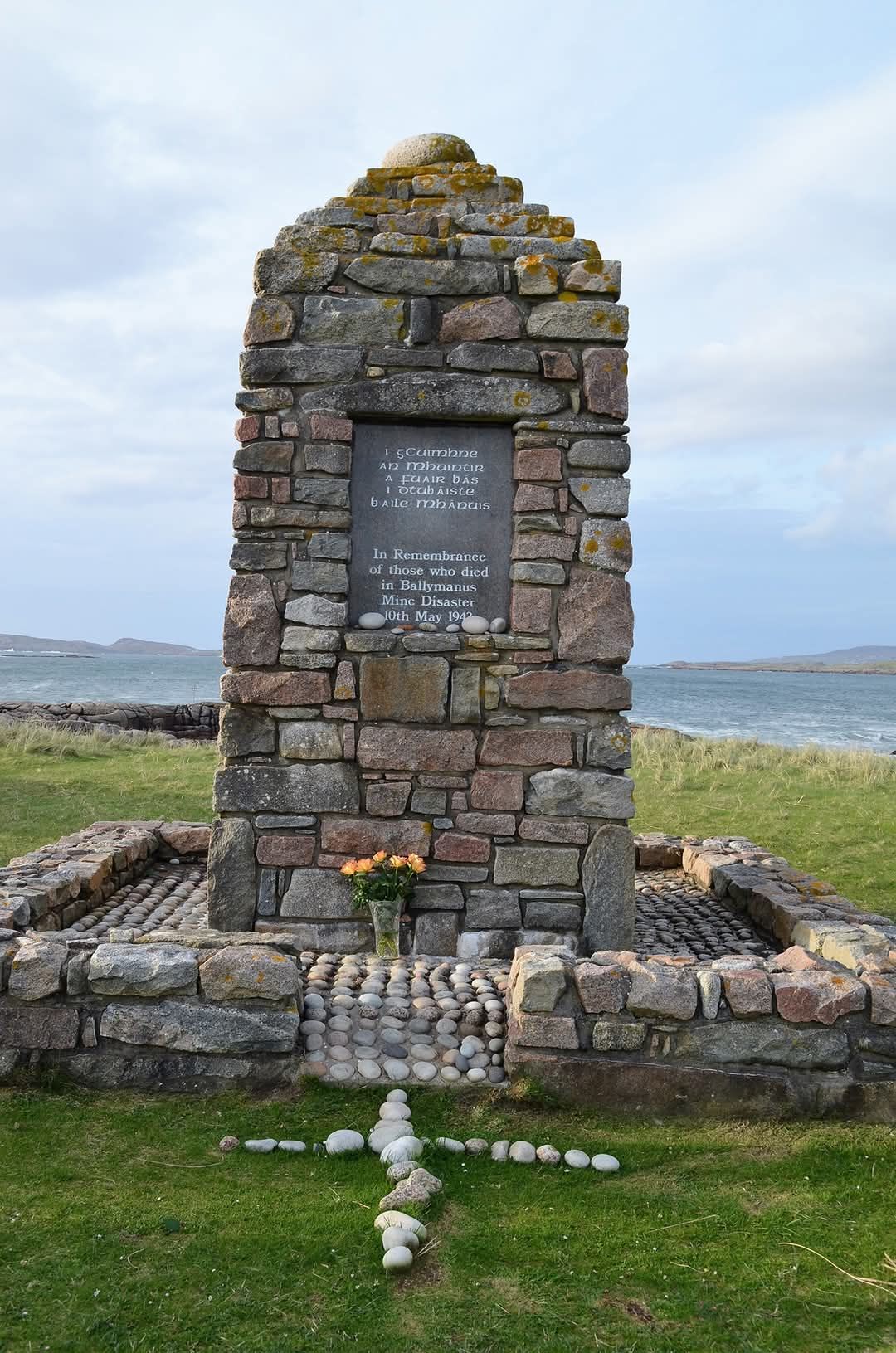
Seventeen people were killed instantly, with John Joseph Carson, 16, passing away the following day, and 15-year-old Anthony Sharkey passed away six days later at Letterkenny Hospital
The 82nd anniversary will be marked at the Ballymanus monument with a Rosary and prayers on Friday May 9, at 7pm.
An unexploded marine mine washed up on a beach in Ballymanus during World War II.
A report by DonegalDemocrat on May 15, 1943, said “The explosion occurred about ten o’clock on Monday night some hours after the mine had been observed floating towards the beach at Ballymanus from the direction of Gola”.
Seventeen people were killed instantly, with John Joseph Carson, 16, passing away the following day, and 15-year-old Anthony Sharkey passed away six days later at Letterkenny Hospital.

Those who passed ranged in age from 13 to 34. Those who were killed include Owen Gallagher (21), Patrick Gallagher (18), Dominick Gallgher (26) brothers from Rannyhual; Joseph Harley (17), Owen Harley (13), Denis Harley (16) brothers from Rannyhual; Anthony Rodgers (33), Rannyhual, James Rodgers, Rannyhual, John Roarty (18), John McGinley (18), Edward Gallagher (21), Micheal Sharkey (15), all from Mullaghduff; Hugh Duffy (17) and his brother James (18) from Braade; Manus O’Donnell (16), John Sharkey (15) from Braade, and John Boyle (16), Ballymanus John Joseph Carson (16), and Anthony Sharkey (15).
A further five people were seriously injured, with about 40 houses in the surrounding area being damaged.
READ NEXT: Dungloe couple celebrate their 60th wedding anniversary back at Kincasslagh chapel
“Forty homes above the ill-fated strand of Ballymanus are damaged,” the Democrat continued, “A few people who had miraculously escaped went to the assistance of the injured and were quickly joined by others who dashed to the scene of the disaster. Soon a dense crowd had congregated and scenes of confusion were witnessed as relatives of the men who were known to have been at the shore dashed frantically,
“The explosion was heard 40 miles around east at Letterkenny, north at Rosapenna, south at Killybegs. At first, the task of those rendering first aid and engaging in the work of recovering the bodies was made more difficult by the density of the crowd which seemed to grow as every minute passed. They were also hampered by the growing darkness, but the work went on heroically and many risked their lives in recovering the remains”.
In the days following the disaster, all public entertainments in the Rosses were cancelled and the Rosary was recited nightly in the Mullaghduff Hall. Local people gathered nightly at dusk and offered prayers for the repose of the souls of the victims.
Despite persistent calls, no formal investigation into the tragedy has ever taken place.
Subscribe or register today to discover more from DonegalLive.ie
Buy the e-paper of the Donegal Democrat, Donegal People's Press, Donegal Post and Inish Times here for instant access to Donegal's premier news titles.
Keep up with the latest news from Donegal with our daily newsletter featuring the most important stories of the day delivered to your inbox every evening at 5pm.